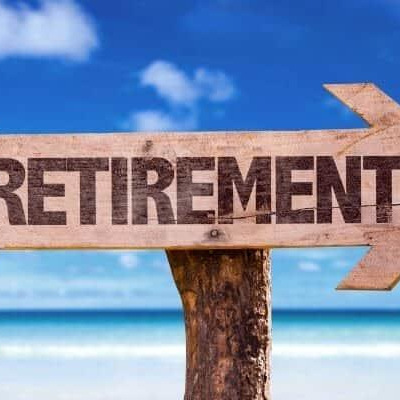Why Is There a Gender Gap in Retirement Savings?
On the subject of retirement savings, there’s a disparity between different genders. For several reasons, women have historically saved less, resulting in delayed retirement and longer working years. The pay discrepancy is a central driving element behind the savings disparity. Despite recent improvements, women are still paid 82 cents for every dollar earned by males.
There was no readily available pay comparison data for trans individuals. The outlook is challenging for trans people, who frequently suffer even larger income disparities than their cisgender counterparts.
Concerning the opportunity gap, a 2016 study discovered that nonbinary people assigned male at birth (AMAB) were more likely to encounter hiring discrimination. In contrast, those assigned female at birth (AFAB) were more likely to face discriminatory treatment within their workplace. Furthermore, nonbinary individuals were more likely to be rejected for a promotion, albeit they performed better than transgender women.
According to a 2008 study, the average wages of transgender women declined by around 32% after transitioning.
When it comes to retirement funds, all of these discrepancies become a self-fulfilling prophecy. Lower salaries equal less money to save. Women are also more likely to have gaps in employment due to time away from work to have a kid or care for a relative, resulting in an income reduction when calculating Social Security.
In 2018, males received $1,627 per month in Social Security, while women received $1,297 per month.
No hard data exists to create reliable pay and savings estimations for nonbinary transgender people. According to one research, nonbinary individuals may experience difficulties progressing forward at work, which might have a cascading impact on earnings and retirement funds.
The Origin of the Retirement Savings Gap
Aside from income discrepancies between genders, Social Security is another contributor to retirement and another area where women fall short. Having a kid or taking time off to care for a family member are two primary explanations for this gap.
According to a Brookings Institution study, having a child decreases a woman’s Social Security payment by 16%, while caring for an elderly relative reduces lifetime earnings by $131,000.
Also, according to a 2016 study, women caregivers under 50 have 30% fewer retirement savings than male caregivers under 50, who have 14% fewer retirement savings.
Meanwhile, the pandemic has put an even larger kink in retirement planning, with around 4 million Americans out of work for six months or more.
Women have been hit harder than males. According to the National Women’s Law Center’s projections based on the U.S. BLS December 2020 Employment Situation Summary, women lost 156,000 jobs in December alone, while men gained 16,000 jobs.
Transgender people have been hit the hardest, with 19% losing employment because of the pandemic. The figure jumps to 26% for transgender individuals of color, and 54% of transgender people have had their hours cut.
An In-Depth Look at the Gender Retirement Savings Gap
The retirement savings disparity has persisted for three key reasons:
1. Financial literacy
In retirement savings, knowledge is power, and this has never been more true. According to 2020 Global Financial Literacy Excellence Center research, women fall behind men in financial literacy.
The causes include feeling awkward when discussing money and not knowing where to go to become more educated. Furthermore, financial planning and investing advice have historically favored men.
2. Salary discrepancies
Although the pay gap is closing, women still receive just around 82 cents for every $1 earned by men. Furthermore, decreased salaries translate to fewer savings, which affects how much money is available in retirement.
However, regardless of gender identification, transgender people may experience salary and opportunity inequalities. According to a 2011 National LGBTQ Task Force survey, 15% of transgender people had a household income of less than $10,000, which translates to a poverty rate roughly four times greater than the overall population at the time.
3. Total years worked
Work style (e.g., part-time) and time away from work to have a child or care for an elderly relative can also contribute to the gender retirement savings disparity.
Regardless of gender, both impact the amount of money that may be saved for retirement, whether through a company-sponsored plan, an individual investment plan, or Social Security.
Narrowing the Gender Retirement Savings Gap
It all begins with financial literacy. Without understanding how and why to save, it might be difficult even to begin.
First, start early. You can never be too early to start learning about money and saving. There’s a lot of information available to help anybody interested in creating or maintaining a savings plan.
According to Science Daily, research by the American Psychological Association has revealed that planning forward might be one method to help rein in those impulsive purchasing tendencies.
Policy changes might aid folks taking time off to have a child or care for a relative and working part-time at companies that don’t provide savings programs.
One option is to pass a federal paid family leave statute. Even though the Family and Medical Leave Act allows for twelve weeks of unpaid leave, only eight states and the District of Columbia have paid leave programs in place.
And while the income disparity has shrunk, considerable policy reforms are likely to be required to truly shift the needle. Iceland is one example of this. According to the Harvard Business Review, Iceland began forcing enterprises with 25 or more employees in 2018 to certify that they pay equal salaries to men and women or risk daily fines.
With the new government in charge, there is also cause for hope. President Biden has detailed an ambitious strategy for addressing some of these financial gaps, beginning with the establishment of the White House Council on Gender Equality.
Contact Information:
Email: [email protected]
Phone: 2129517376
Bio:
M. Dutton and Associates is a full-service financial firm. We have been in business for over 30 years serving our community. Through comprehensive objective driven planning, we provide you with the research, analysis, and available options needed to guide you in implementing a sound plan for your retirement. We are committed to helping you achieve your goals. Visit us at MarvinDutton.com . Tel. 212-951-7376: email: [email protected].













